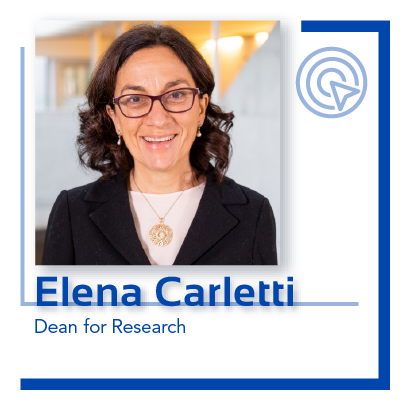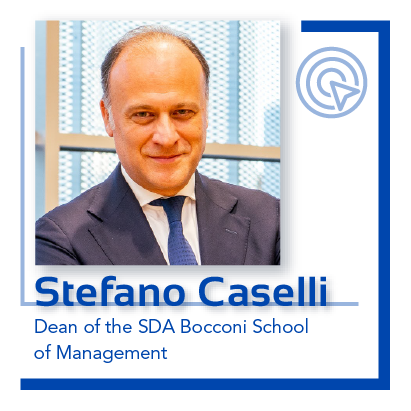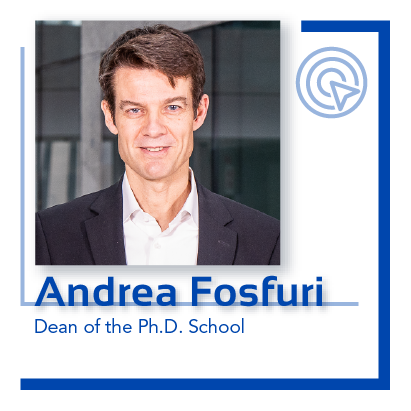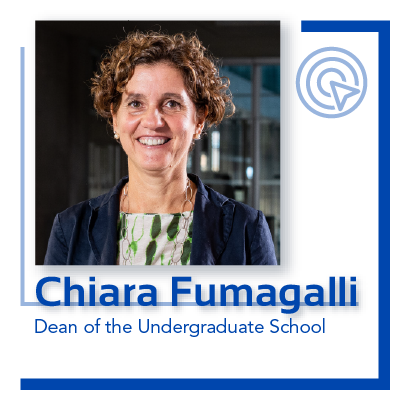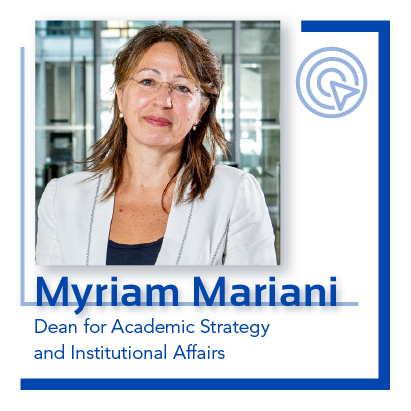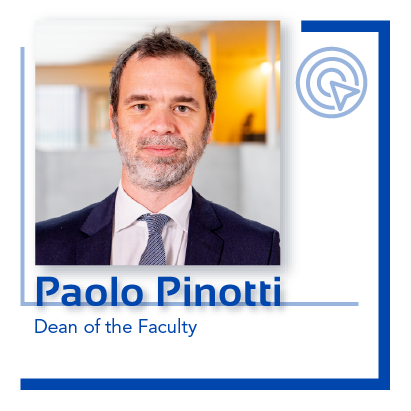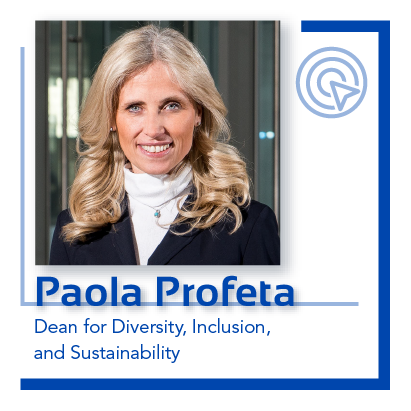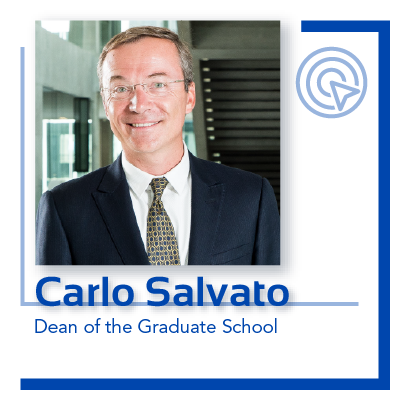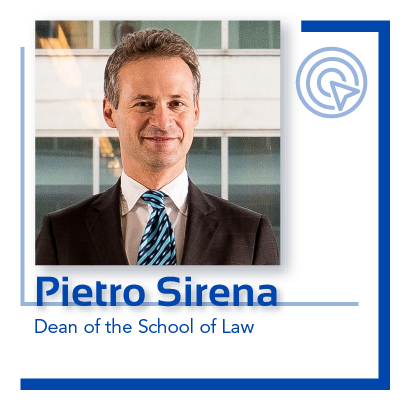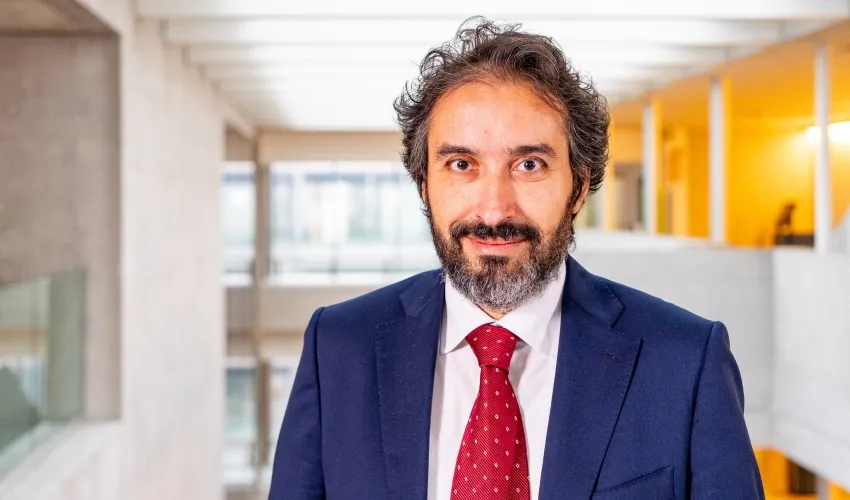
Training 'futureproof' students
There is a memory that comes back overwhelmingly in the mind of Francesco Billari when he is asked where his interest in demography, which he teaches at Bocconi University, originates from: his fifth-grade essay on the most widely spoken languages ​​of the world, when he had put together the data for each single country, since "there were no ready-made statistics." In doing so, he was combining those elements that would accompany him for life: a passion for data, geography and the study of the world through the study of people. He lacked a place to call home, where he could shape and develop all this. Bocconi has become that place. A home he sometimes had to leave for international projects, including the leadership of a research group in the Max Planck Institute for Demographic Research in Rostock or as Chair of the Department of Sociology at the University of Oxford. But it is an academic home ("thatI wish to take care of") that he always returns to and has been leading as Rector since November 1st.
What do you see in the future of your University?
The external environment is changing very rapidly, we must react both in terms of research and teaching. In research, we must be able to anticipate trends and do research that can change, even slightly, the trajectories of society. In teaching, we must be able to train future-proof students. Young people that are ready for the upcoming trends in the world of work. But also, students who want to make a positive impact in society.
Which elements of innovation would you like to bring to Bocconi?
The establishment of Bocconi as a great global university which studies the social sciences in the broadest sense. For this we will have to deal with cognitive science and behavioral science, exploring how people make their decisions across different areas and time periods.
Teachers and role models to be inspired by are important. What were yours?
For demography, Carlo Maccheroni and Giuseppe Micheli. When I returned to Bocconi after my first experience abroad, Michele Cifarelli, who called me precisely to oversee that branch of statistics that is more oriented towards describing the world. And Lorenzo Peccati, who transmitted his love for Bocconi to me and always advised me.
And outside the University?
My doctoral thesis supervisor, Fausta Ongaro, who taught me rigor and seriousness in research.
Which role models would you like students to meet at Bocconi?
Professors and leaders who, beyond their skills and roles in companies or institutions, have the goal of building a world in which the new generations can live and grow. People who put the values ​​of inclusion at the center of every action. It doesn't matter if they work in finance or in non-governmental organizations: we must all contribute to reducing inequalities and making the world more socially and environmentally sustainable. We need women and men who can leave a positive footprint in the world and who can be an inspiration for young people.
From role models to your model of University.
I think that the role of a university like Bocconi is fundamentally to train managers and corporate and institutional leaders who are capable of seizing innovation and transfer its benefits downstream to the rest of society. Let's take the example of the vaccine: it is good that you invented it, but if you don't have the ability to spread it to everyone, we have not solved the societal challenge. But this is only possible if teaching is closely linked to research. Bocconi has established itself as a research university, i.e. a university that generates ideas.
So, what does research represent to you?
It is one way to contribute to the formulation of policies that shape society. That does not mean that only applied research is needed. In fact, the key to Bocconi research lies in the balance between basic, theoretical, visionary research projected towards the future, and applied research, which has an immediate impact on the economy and on businesses.
The demographic question is a hot topic in Italy today. Do you feel you the burden of responsibility as a demographer?
Demographers have been very good at communicating so-called 'slow demography', which is the one that starts from the idea that society is characterized by megatrends that change very slowly. But there is also a fast kind of demography - demography is not exogenous, it is also a consequence of policy. Everything that happens in Italy in terms of families' household behavior also depends on political decisions. If we want to change a population, repopulate an area or slow down depopulation, we need to think about people migrating to those places. I therefore feel the duty, as demographer, to study and portray the impact of fast demography.
As a demographer you regularly use data in your research work. What is their real value today?
Max Roser is an economist I had the privilege of knowing during the time I spent working at the University of Oxford. He is a startupper of ideas and data. In 2011, when he was 28, he founded OurWorldinData.org, an open-access online platform which "presents the data and research needed to make progress." Several million people access the platform every month, which is used by journalists, officials and politicians. Today data are the basis of research and therefore of progress. We must learn to use them better and above all not be afraid of them.
From Max Planck to Oxford: what have you learned from those experiences?
In Rostock I proposed my candidacy for what then seemed a crazy position for Italian standards: to be a leader of a research group with its own separate budget. But in fact, it is the model that would later give shape to projects of the ERC, the European Research Council. We need to bet on good ideas and thus make researchers grow. In Oxford, as Department Head, I was responsible for both the academic and the administrative aspects. So it meant taking a cold shower of realism, since I had to manage the trade-off between academic excellence, which is taken for granted at Oxford, and budgetary constraints. Oxford cannot afford to pay the salaries of Harvard or Stanford, but it manages to offer a package that is attractive and consistently makes it to the top three positions in the world.
The different roles you held at Bocconi were a sort of training ground to prepare you for the position you hold today.
In 2005 the project for a center for research on social dynamics was conceived and I was called to oversee its creation. The Dondena Research Center, launched in 2006, uses the statistical approach and applies it to important issues such as social mobility, demographic dynamics, gender, inclusion, and families - all issues that weren't so mainstream at the time. Above all, it embraced two concepts that are fundamental for Bocconi today: interdisciplinarity on foundational topics and disciplinary breadth. You can say that my role as an academic startupper contained the embryo of the experience I now have to face as Rector.
The experience and responsibility in understanding and managing an institution must also come from your previous experiences as Dean for Development in 2009 and Dean of the Faculty in 2016.
In the first role, where I was called by Rector Guido Tabellini to relaunch fundraising (another element that is present in the strategic plan), I was able to concretely take care of Bocconi, learning to know all its facets and entering into a dialogue with everyone. The second role, as Dean of the Faculty in Gianmario Verona's rectorate, allowed me to contribute to the mission of attracting the best talent here, in a period when the University was focusing on broadening its disciplinary spectrum and on the international quality of the faculty.
All three of those roles force the University look outside its own walls.
A university has the task of cultivating basic thinking (including 'theoretical' research) and 'applied' thinking, with a strong focus on the second aspect, precisely in order not to incur the risk of becoming an ivory tower. On the other hand, society and institutions have the task of financing not only research that is immediately applicable but infrastructures for theoretical research, because only by generating new ideas can innovative solutions be found. Between universities and companies there must be real partnerships that hold both these dimensions together.
The impact of the ideas generated also passes through one's students..
You need to increase the diversity of your community, be inclusive and therefore act as an engine of social mobility. In this, Bocconi is doing a lot with scholarships, financial aid and funding projects destined to young people who would hardly have the opportunity to choose a university of excellence. We shall do even more. Furthermore, the aspiration is to be able to do more also at the international level, welcoming refugees and people from troubled countries. Young women and young men who have a motivation to improve the world is contagious, both with respect to fellow students and other components of the Bocconi community.
So far the scholar. But who is Francesco Billari?
A very attentive person who listens to others. On the outside I can appear very calm, in reality I am moved by passion, in everything I do. In addition to research, there are two things that make my heart beat faster: FC Inter football team, and wine which I approach with the same intensity with which I approach a new research project: collecting data and studying. Today I am a certified sommelier and taster.
